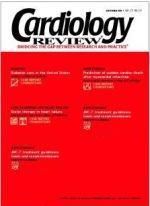All patients with type 2 diabetes should be considered for a statin
ORLANDO—Treatment with atorvastatin can reduce the risk of a first major cardiovascular event by about one third in patients with type 2 diabetes without raised cholesterol levels, said Helen M. Colhoun, MD, at the 64th Annual Scientific Sessions of the American Diabetes Association (ADA).
The Collaborative Atorvastatin Diabetes Study (CARDS) is the first study of a lipid-modifying agent for the primary prevention of cardiovascular disease conducted solely in patients with type 2 diabetes. Even without hyperlipidemia, type 2 diabetes is associated with an elevated risk of coronary heart disease and stroke, said Dr. Colhoun, coprincipal investigator of CARDS and professor of genetics and epidemiology at The Conway Institute, University College Dublin, Ireland. For this reason, patients with type 2 diabetes and low-density lipoprotein (LDL) cho lesterol levels of 160 mg/dL or less were chosen for inclusion. In all, 2,838 patients with no clinical history of coronary, cerebrovascular, or severe peripheral vascular disease were randomly assigned to atorvastatin, 10 mg daily, or placebo. To be eligible, patients had to have one of the following cardiovascular risk factors in addition to diabetes: hypertension, retinopathy, micro- or macroalbuminuria, and current smoking. At baseline, the mean level of LDL cholesterol was 118 mg/dL in those given placebo and 119 mg/dL in those given atorvastatin. “Two thirds of the patients enrolled had LDL cholesterol levels below the current ADA guideline for pharmacologic intervention,” said Dr. Colhoun. Twenty-five percent had an entry LDL cholesterol of less than 100 mg/dL, which is the current target of therapy in patients with type 2 diabetes.
The trial was ended 2 years before the planned termination date because of the significant positive outcome associated with atorvastatin, she said. After approximately 4 years, patients randomized to atorvastatin had a 37% reduction in the risk of major cardiovascular events (P = .001), including a 36% reduction in the risk of acute coronary events and a 48% reduction in the risk of stroke. The treatment effect was apparent regardless of baseline LDL cholesterol level, baseline high-density lipoprotein cholesterol level, and baseline triglyceride level. There was also no difference in treatment effect in patients older or younger than 60 years.
With the overwhelming benefit derived from atorvastatin in CARDS, patients with type 2 diabetes should be automatically considered for statin therapy, regardless of their cholesterol level, said Dr. Colhoun. “CARDS suggests that there is no justification for having a threshold level of LDL cholesterol as the sole arbiter of which patients with type 2 diabetes should receive statin treatment,” she said. “The overall cardiovascular risk should be the principal determinant.”
Ten percent of placebo recipients discontinued therapy due to adverse events, compared with 8.5% of atorvastatin recipients. The incidence of muscle- and liver-related adverse events was similar in each group. The ADA will consider the results of CARDS when establishing new recommendations to prevent cardiovascular events in patients with type 2 diabetes, said Richard Khan, PhD, chief scientific and medical officer at the ADA. The organization typically reviews the results of trials annually in considering issuance of new guidelines, he said. The study was sponsored jointly by the charity UK Diabetes, the UK Department of Health, and Pfizer, Inc.
